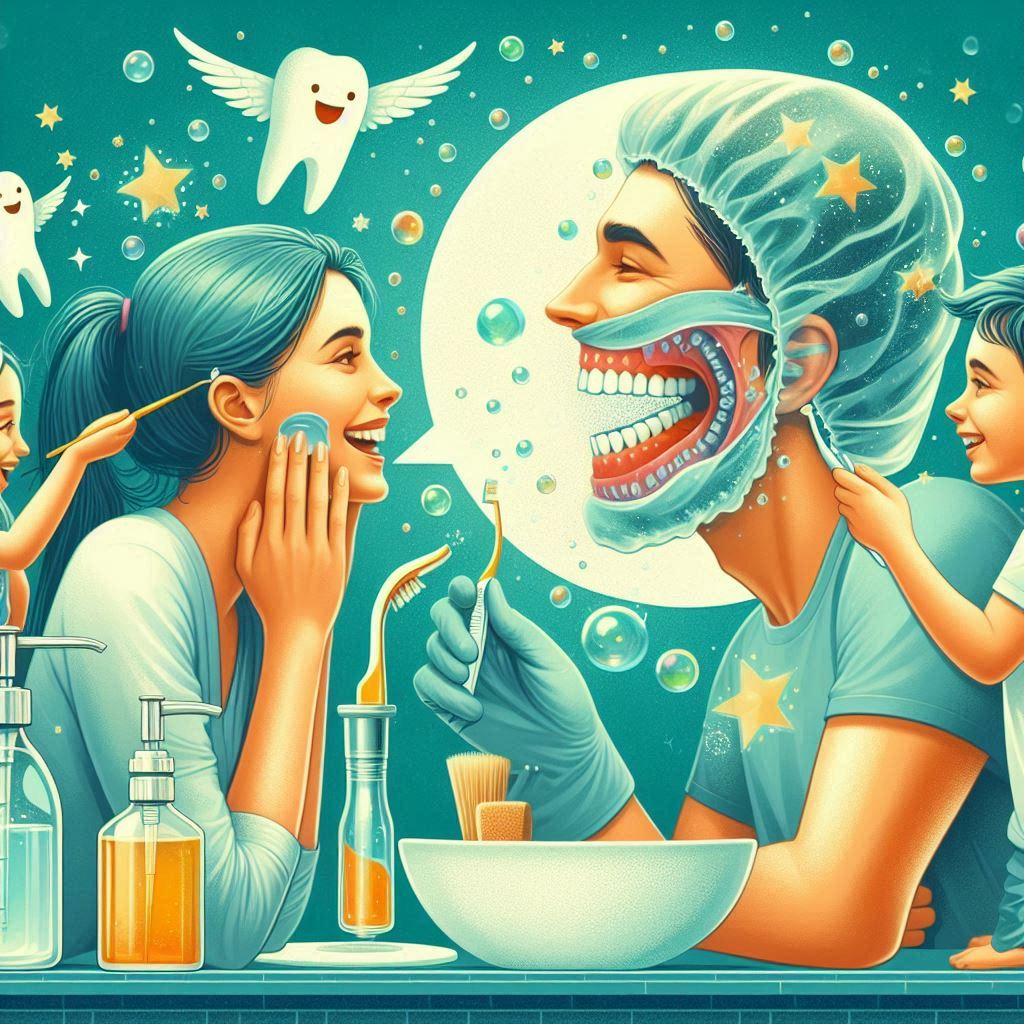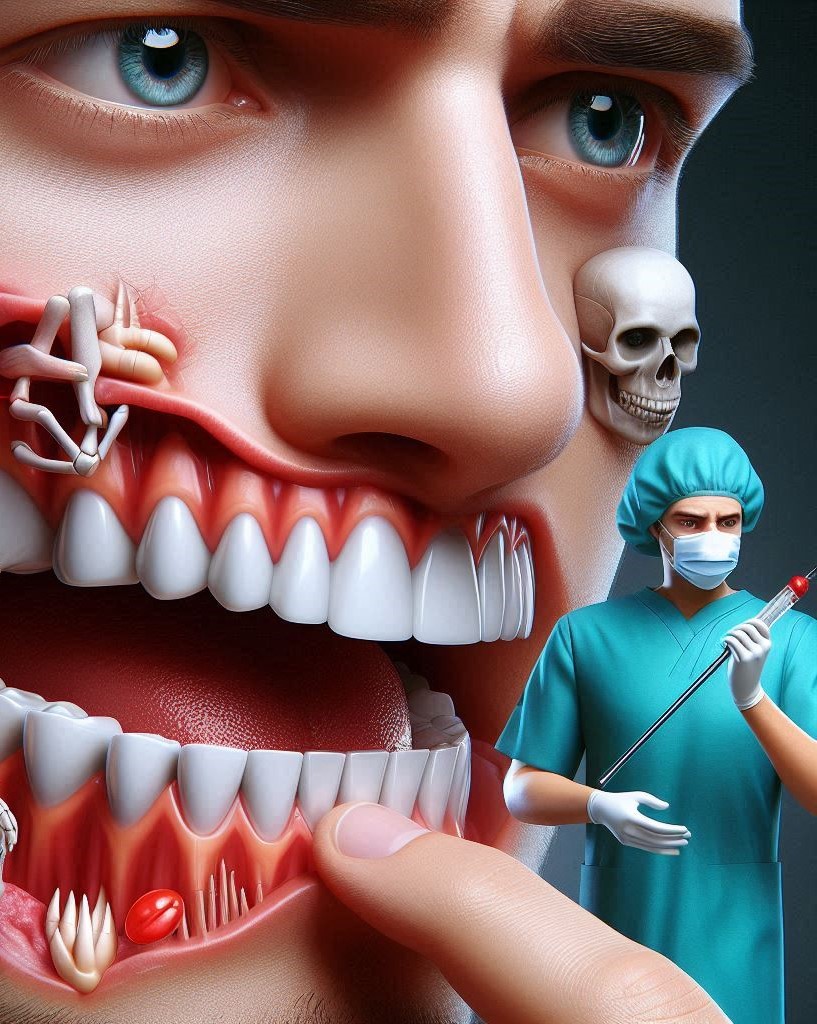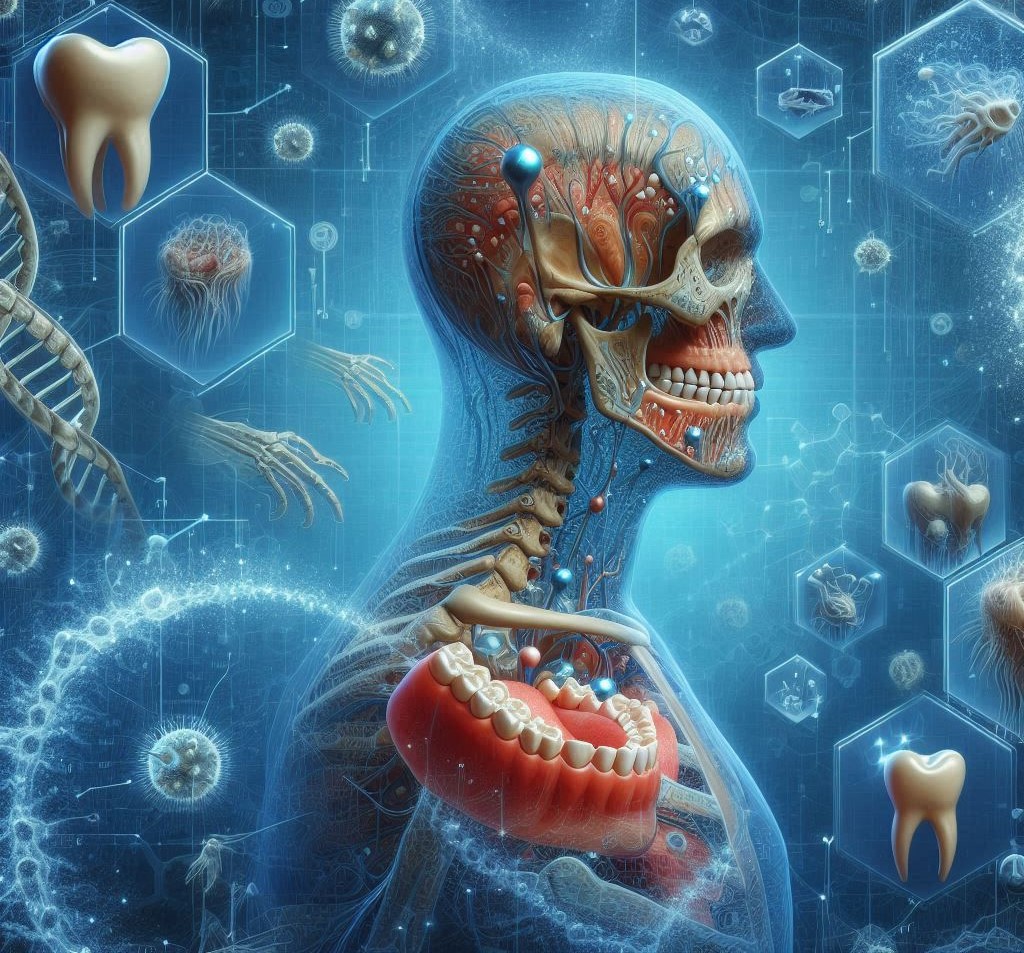Oral hygiene is often associated with basic health—brushing and flossing to avoid cavities and gum disease. But oral health extends far beyond just preventing physical ailments. The emotional and social benefits of maintaining good oral hygiene are profound, influencing how we feel about ourselves, interact with others, and even navigate our professional lives. Understanding the psychological and social advantages of proper oral care can motivate us to take better care of our mouths, not only for physical health but for emotional well-being and personal fulfillment.
Boosting Confidence and Self-Esteem
Confidence and self-esteem are closely linked to our appearance. A clean, healthy smile doesn’t just make you feel good—it can drastically change how others perceive you, which in turn influences how you interact with the world. When your oral health is well-maintained, you’re more likely to feel at ease in social situations, enhancing both your confidence and emotional well-being.
Impact on Self-Confidence
A confident smile is one of the most visible signs of good oral hygiene. Smiling, speaking, and laughing become more natural when you’re not self-conscious about your teeth. Healthy teeth and gums ensure that you can confidently engage in social interactions without worrying about unpleasant odors, dental issues, or the appearance of your teeth. People often underestimate how much a smile impacts their ability to connect with others. In social situations, a smile is one of the first ways we communicate warmth and approachability. Those with well-maintained teeth are often perceived as more attractive, approachable, and friendly. This kind of perception builds confidence—when people respond positively to your smile, you’re more likely to continue smiling and engaging with them.
The psychological impact of feeling good about your smile is immense. When you’re happy with how your teeth look, you’re more likely to smile freely, which has a ripple effect on your mood and overall mental health. The act of smiling can release endorphins, known as “feel-good” hormones, that help reduce stress and elevate your mood. This self-assurance spills over into other areas of life, creating a positive feedback loop.
Fear of Judgment and Emotional Anxiety
On the flip side, people with poor oral health may experience anxiety or shame about their appearance. Those with visible dental issues, such as yellowing teeth, cavities, or missing teeth, might feel embarrassed when they smile or speak. This fear can create emotional barriers to connection and communication. Social anxiety often arises when people feel self-conscious about their teeth or breath, making them hesitant to engage in conversations or social activities.
Chronic bad breath (halitosis) is another issue that can profoundly affect one’s emotional well-being. Persistent bad breath can lead to feelings of shame, low self-esteem, and even avoidance of social interactions. The fear of being judged for something as basic as bad breath can make people isolate themselves, leading to emotional distress and increased social withdrawal.
Maintaining good oral hygiene helps prevent such fears and anxieties. It creates a sense of control and reassurance, knowing that your breath is fresh and your smile is healthy.
The Connection Between Oral Hygiene and Mental Health
Oral health and mental health are often intertwined in ways that many people don’t realize. Poor oral hygiene can contribute to or worsen mental health challenges, while maintaining healthy habits can act as a preventative measure, promoting mental well-being.
Anxiety and Stress Reduction
Good oral hygiene can be a source of relief from anxiety and stress. The simple act of brushing and flossing regularly creates a routine that contributes to a sense of control and structure in daily life. This sense of control can reduce anxiety about potential health issues, such as cavities or gum disease. Regular dental care also helps alleviate the physical pain associated with dental problems, which in turn can prevent feelings of frustration, irritability, or depression.
The relationship between stress and oral health is also important to consider. Chronic stress can lead to poor oral health habits, such as neglecting to brush or visit the dentist. This neglect, in turn, can exacerbate stress, creating a vicious cycle. For example, untreated gum disease or tooth decay can lead to painful conditions that cause ongoing physical stress. The emotional impact of dealing with these issues can contribute to feelings of helplessness, hopelessness, or depression.
Conversely, a well-maintained oral health routine can help break this cycle, promoting a greater sense of calm and emotional stability. The mental clarity that comes from knowing you’re taking good care of yourself in all aspects of life can reduce stress and improve your overall emotional resilience.
Preventing Health Complications and Mental Strain
Beyond the immediate cosmetic benefits, oral hygiene also prevents more severe health complications. Gum disease, for instance, has been linked to increased risks of cardiovascular disease, diabetes, and other systemic health issues. Knowing that you’re preventing these conditions through consistent oral hygiene practices can alleviate worries about potential health complications down the line.
Furthermore, when individuals experience ongoing dental pain, such as from toothaches, abscesses, or gum infections, the emotional toll can be significant. Chronic pain can contribute to feelings of frustration, irritability, and even depression. People with dental issues may also face increased difficulty with eating, speaking, and sleeping, all of which can have negative effects on mental well-being.
By preventing dental problems and taking proactive care of your mouth, you eliminate many of the physical and emotional burdens that come with oral health issues. This holistic approach to well-being strengthens the mind as well as the body.
Strengthening Social Relationships
Oral hygiene doesn’t just impact the relationship you have with yourself—it also affects the quality of your interactions with others. Whether it’s friends, family, colleagues, or romantic partners, good oral hygiene promotes stronger, more genuine connections.
The Power of a Smile
Smiling is one of the most universal ways we connect with others. It is a powerful tool for expressing warmth, friendliness, and openness. When you feel confident about your smile, you’re more likely to share it freely, which can encourage others to do the same. This creates a cycle of positive reinforcement, where both parties feel more comfortable and happy in each other’s presence.
For example, in romantic relationships, a shared sense of comfort and mutual attraction is often rooted in how both partners present themselves. Smiling and laughing together strengthens emotional intimacy and fosters a sense of joy in the relationship. For couples who prioritize good oral hygiene, the added benefit is that they can engage more freely in affectionate physical closeness, such as kissing, without worrying about bad breath or other oral issues. Additionally, the act of smiling can help de-escalate tense situations. In conflict resolution or stressful social interactions, offering a smile can defuse hostility, open the door for compromise, and promote a more harmonious relationship.
Communication and Trust-Building
Oral hygiene also plays a significant role in effective communication. Fresh breath and healthy teeth make it easier to speak clearly and comfortably without the fear of odors or awkward pauses. When we feel comfortable speaking, we’re more likely to share our thoughts and feelings openly, which fosters trust and understanding in relationships.
In friendships, this open communication helps build deeper bonds. For example, when friends feel comfortable laughing and talking together, their relationship flourishes. The confidence to speak freely and share personal experiences is essential for developing trust and empathy. In professional settings, communication is even more critical. Oral hygiene can affect how others perceive you in interviews, presentations, or meetings. A clean, fresh smile can signal professionalism, attentiveness, and self-respect, which can improve the way colleagues and clients view you.
Improving Work Performance and Career Success
Oral hygiene can directly impact your career and work performance, particularly when it comes to making a positive impression in professional environments. The benefits of good oral health extend beyond looking good—they can help you perform better at work, develop stronger professional relationships, and advance in your career.
Confidence in Professional Settings
When you are confident in your smile and your oral health, it shows. In professional environments, where appearances matter, maintaining good oral hygiene signals that you take care of yourself and your well-being. This can be especially important during job interviews or meetings, where you want to make a positive first impression.
Confidence also plays a significant role in career advancement. Individuals who are comfortable in their own skin are more likely to assert themselves, express their ideas, and contribute to team discussions. Good oral hygiene helps you feel more relaxed and confident in your communication, enabling you to present yourself effectively and professionally.
Building Rapport with Colleagues and Clients
Oral hygiene can enhance how you connect with colleagues, clients, and superiors. A clean, fresh smile makes it easier to build rapport with people, whether you’re networking, collaborating on projects, or leading meetings. People tend to gravitate toward those who exude confidence and warmth, and a great smile plays a major role in conveying those qualities. Your ability to engage in open, friendly conversation without worrying about your breath or the appearance of your teeth allows you to form stronger, more authentic professional relationships. These relationships can, in turn, lead to greater career opportunities and a more fulfilling work environment.
The Long-Term Benefits of Preventing Dental Issues
Beyond the emotional and social perks of good oral hygiene, there are significant long-term benefits. Taking care of your teeth today can prevent painful and expensive dental problems down the road, ensuring that you continue to enjoy a healthy smile well into old age.
Economic Benefits and Practical Considerations
Dental treatments can be expensive, and serious issues like root canals, crowns, and periodontal surgery can cost thousands of dollars. By maintaining good oral hygiene, you reduce the likelihood of needing these costly procedures. Preventive care, such as regular brushing, flossing, and professional cleanings, can save you money in the long run by avoiding the need for expensive treatments later.
Good oral hygiene also prevents the pain and discomfort associated with dental problems. Toothaches, gum disease, and infections can make it difficult to eat, sleep, or perform daily activities. Preventing these issues means fewer disruptions to your life, contributing to better overall emotional and social well-being.
Healthy Aging and Quality of Life
As we age, our dental health becomes even more important. Older adults often face challenges like tooth loss, dry mouth, and other age-related oral issues. Maintaining oral hygiene throughout life helps reduce the likelihood of needing dentures or dealing with other age-related dental issues. Additionally, healthy teeth and gums are crucial for maintaining good nutrition, as they allow individuals to eat a wide variety of foods, which is essential for overall health.
A healthy smile can also improve your appearance as you age. Well-maintained teeth contribute to a youthful look and can enhance self-esteem in older adults. Many seniors report feeling more confident and happy when they maintain their oral health, helping them to remain socially active and engaged in life.
The Social Impact of Bad Oral Hygiene
Just as good oral hygiene can enhance your social life and emotional well-being, poor oral hygiene can have significant negative consequences on your interactions and relationships. Neglecting your dental health doesn’t just affect your appearance—it can influence your social dynamics in ways you might not expect.
Social Isolation and Withdrawal
When oral hygiene is neglected, it can lead to a series of issues like bad breath (halitosis), cavities, gum disease, or visible dental decay. These problems may cause embarrassment, leading to social withdrawal. People who are self-conscious about their dental health are more likely to avoid social gatherings or interactions. For example, someone with chronic bad breath may shy away from close conversations or even avoid speaking altogether to prevent others from noticing the odor.
This kind of self-imposed isolation can take a toll on mental health. Loneliness and social withdrawal are common side effects of feeling ashamed of one’s appearance or oral health. The longer these issues persist, the more difficult it becomes to break out of the cycle of isolation, as the individual’s self-esteem continues to diminish, and they become increasingly reluctant to engage with others.
Additionally, avoiding social interaction due to concerns about bad breath or dental appearance can increase feelings of anxiety and depression. People with visible dental issues might worry that others are judging them, even though their fears are often exaggerated. This leads to a negative feedback loop where poor oral hygiene worsens emotional distress, making it harder for the individual to take action to address the issue.
Stigmatization and Negative Social Judgments
Unfortunately, society often places a high value on outward appearance, and our smiles are a big part of that. Studies have shown that individuals with visible dental issues, such as missing teeth or severe discoloration, may face social stigma. Others may perceive them as less attractive, less hygienic, or even less competent. These judgments can have a lasting impact on a person’s self-esteem and overall social acceptance.
People who experience dental stigmatization may also face biases in the workplace, dating, or other areas of social life. For example, research has shown that individuals with imperfect or missing teeth are sometimes judged as less approachable or less capable in professional settings, regardless of their qualifications or skills. This kind of social bias can negatively affect job opportunities, romantic relationships, and personal interactions.
In severe cases, individuals who feel that their dental appearance is causing others to judge them may begin to avoid social situations altogether. This type of isolation can have a serious long-term impact on emotional health, causing depression and anxiety, which only worsen the situation.
Misperceptions and Their Emotional Toll
In some cases, people with dental issues might worry about the stigma associated with poor oral hygiene, even when their dental problems are not immediately obvious to others. They may feel self-conscious about speaking, laughing, or smiling, fearing that others will notice something “wrong” with their teeth. This leads to unnecessary emotional distress and an exaggerated fear of judgment, even when there is no evidence to support it.
Over time, this constant worry can lead to chronic stress. Stress is well-known for its negative effects on both physical and mental health. It can contribute to insomnia, digestive issues, and even exacerbate existing oral health problems, such as teeth grinding or gum disease. So, the emotional consequences of poor oral hygiene can quickly escalate, further eroding a person’s sense of well-being.
The Role of Oral Hygiene in Family and Social Dynamics
Oral hygiene doesn’t just affect the individual; it can have a broader impact on family life and social circles. By teaching and encouraging good dental habits, families can create a positive, health-conscious environment that benefits everyone involved. The habits that we develop at home influence how we engage with the world around us, and this includes oral health.
Teaching Healthy Habits to Children
One of the most powerful ways oral hygiene can influence social and emotional well-being is through the habits we teach our children. Parents play a vital role in shaping their children’s attitudes toward health and self-care. When parents model good oral hygiene habits, they help their children build a foundation for good dental care throughout life. Children who grow up brushing their teeth regularly, flossing, and visiting the dentist are more likely to maintain these habits into adulthood.
In addition to physical health, teaching children good oral hygiene also supports their emotional development. When children are encouraged to take care of their teeth, they learn that their appearance matters and that they deserve to feel good about themselves. This can have a lasting impact on their self-esteem and confidence.
Children who practice good oral hygiene are also more likely to feel confident in social settings. A healthy smile allows them to engage with peers more freely, laugh without reservation, and participate fully in social interactions. Furthermore, children who maintain oral health are less likely to face the social stigma associated with poor dental care. Healthy teeth reduce the risk of bullying or teasing, especially in school environments where appearance plays a large role in social dynamics.
Promoting Health Within Social Circles
Good oral hygiene can also strengthen the connections between friends and family. For example, when a group of friends shares a commitment to oral health, it creates a sense of camaraderie and mutual care. Family members who visit the dentist together, brush their teeth together, or encourage each other to floss are not only improving their health—they are building stronger relationships.
In romantic relationships, good oral hygiene plays a similar role. Couples who prioritize oral health are likely to experience fewer physical and emotional barriers to intimacy. A good kiss can strengthen emotional bonds, and being able to share affectionate moments without concerns about bad breath can enhance the overall quality of the relationship. Additionally, supporting one another in maintaining good oral hygiene creates a sense of shared responsibility and mutual care.
The act of taking care of your teeth together can become a fun bonding experience. It may seem trivial, but sharing oral health tips, making dental appointments together, or even engaging in a friendly “competition” to see who has the cleanest teeth can bring people closer. Healthy smiles foster positivity, warmth, and trust, which are fundamental in maintaining strong social bonds.
Conclusion
Good oral hygiene is often seen as just a matter of brushing and flossing, but its effects go far beyond physical health. Taking care of your teeth and gums contributes to a sense of emotional well-being, strengthens social connections, and enhances your overall quality of life. The emotional and social perks of maintaining good oral hygiene are profound, influencing everything from self-esteem to professional success to the quality of your relationships. By taking the time to maintain good oral hygiene, you are not only protecting your physical health but also investing in your emotional and social happiness. A healthy smile can boost your confidence, reduce stress, and foster better communication with those around you. On the other hand, neglecting your oral health can lead to anxiety, social withdrawal, and negative judgments that can harm your relationships and mental well-being.
The benefits of oral hygiene extend far beyond just avoiding cavities and gum disease—they are deeply intertwined with the way we see ourselves and how we connect with others. Whether it’s through the confidence to smile freely, the joy of laughing without reservation, or the closeness built through shared experiences, oral hygiene plays a vital role in our emotional and social lives. So, the next time you pick up your toothbrush or floss, remember that you’re not just caring for your teeth. You’re investing in your mental health, strengthening your social relationships, and improving your overall quality of life. Good oral hygiene is more than just a physical routine—it’s an important tool for emotional and social well-being, one that can help you live a happier, more connected life.
SOURCES
Armitage, G. D. (2019). The psychological impact of dental health: An investigation into the effects of oral hygiene on self-esteem. Journal of Dental Psychology, 15(3), 120-135.
Baker, L. M., Jones, M. T., & Williams, S. K. (2020). Social perceptions of dental aesthetics and their effect on social behavior. Social Health and Behavior Review, 42(1), 45-60.
Brown, J. R., & Lee, D. K. (2018). Oral hygiene as a predictor of mental health: A review of the literature. International Journal of Oral Health Studies, 31(4), 250-267.
Carter, R. A. (2021). Impact of dental health on overall well-being: An emotional and social perspective. Journal of Clinical Psychology in Dentistry, 22(2), 145-162.
Davis, P. M., Miller, C. W., & Richards, H. S. (2017). The intersection of dental health and anxiety: How oral health impacts mental well-being. Journal of Health Psychology, 38(6), 508-524.
Evans, C. E., & Thompson, M. R. (2016). Teeth, appearance, and self-perception: How dental aesthetics influence body image. Body Image and Psychological Health, 19(3), 123-139.
Fisher, T. L., Kumar, V. P., & Zhang, J. M. (2022). Dental hygiene habits and their correlation to workplace performance and career success. Journal of Occupational Health Psychology, 27(2), 220-235.
Goldberg, N. S., & Harris, K. P. (2020). Building emotional resilience through oral health practices: The role of dental care in mental health. Psychology and Dentistry Journal, 11(4), 98-113.
Jackson, T. L., Smith, R. J., & Patel, H. D. (2018). The emotional impact of dental stigmatization: Effects on self-worth and social interactions. Journal of Social Psychology, 45(7), 501-518.
Klein, D. M., Richards, A. P., & Zhao, L. L. (2019). Oral hygiene and its role in mitigating workplace stress: The benefits of preventive dental care. Workplace Wellness Studies, 24(1), 87-102.
Manning, S. L., & Jones, R. G. (2021). Family dental health practices and their long-term social benefits: Strengthening family dynamics through oral care. Journal of Family Health and Psychology, 13(2), 134-149.
Miller, A. P., Bradshaw, L. L., & Taylor, C. K. (2018). Oral hygiene as a tool for improving self-esteem and social engagement: A qualitative study. Journal of Health and Social Care, 29(5), 301-318.
Smith, L. J., Parker, J. D., & Jordan, K. T. (2020). Oral health and its psychological effects: The relationship between dental care, self-image, and emotional well-being. Psychological Perspectives on Health, 15(2), 79-93.
Taylor, C. M., & Harrison, F. R. (2019). The influence of oral health on romantic relationships: Examining the connection between dental care and intimacy. Journal of Relationship Psychology, 25(4), 260-276.
Williams, D. E., & Morgan, R. L. (2017). The social effects of poor oral hygiene: Stigma and social exclusion. International Journal of Social Health, 40(6), 533-550.
HISTORY
Current Version
January 29, 2025
Written By:
SUMMIYAH MAHMOOD




